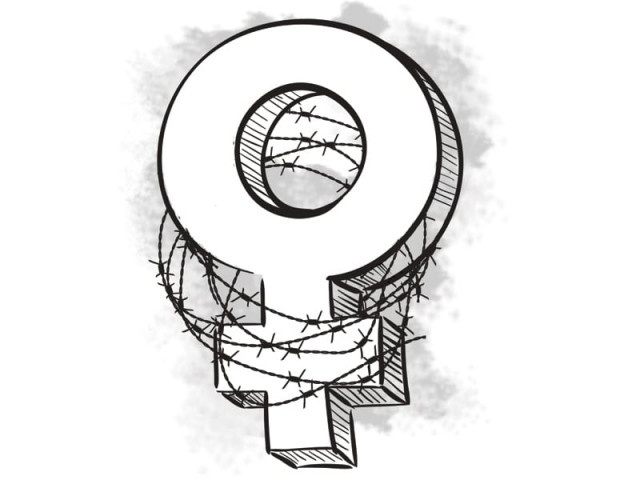No to exploitation:‘Lack of women’s visibility results in more violence’
Activists demand legislation and sensitisation of law enforcement agencies in dealing with vulnerable groups.

There is a general acceptance of violence against women in Pakistan, which is why people don’t see it as a crime, activist Amna Ehsan said on Tuesday at a media forum held in connection with the International Day for the Elimination of Violence against Women.
She said most people looked at various forms of gender-based violence as part of a culture.
Association of Women for Awareness and Motivation (AWAM) and the Pakistan Gender Coalition (PGC) organised the media forum. They demanded legislation for the prevention of domestic violence, protection for home-based and domestic workers [most of whom are women] from exploitation, violence and bondage.
“When the state fails to prosecute perpetrators of violence, it not only encourages abuse, but also creates an impression that violence against women is acceptable,” Ehsan said.

Ayesha Rafiq, a lawyer, said there were loopholes in the monitoring system. “The system does not allow for effective redress in such cases.”
Alongside legislation, the government must also devise an efficient monitoring system to ensure strict implementation of law. She said law enforcement agencies needed to be trained to protect vulnerable groups.
AWAM director Nazia Sardar said the government must prioritise policy and prepare a plan of action to recognise women workers engaged in the informal sector as part of the labour force. She urged the government to ratify and implement the ILO Convention’s Clause 177 that deals with home-based workers and the ILO Convention Clause 189 that deals with domestic workers. She said the government must ensure proper implementation of the Convention in order to guarantee women’s access to social security.
Sardar stressed the need to adopt a national policy and strategy to end violence against women and girls. The government must oversee the entire process from prevention to rehabilitation, she said.
The federal and provincial governments must enforce existing laws that protect women and pass new laws like the Domestic Violence Bill, the Comprehensive Acid and Burn Crime Bill, the Early and Forced Marriages Bill, the Reproductive Health Rights Bill, the Home-Based Women Workers and Social Protection Bill, she said.
Activist Shazia George said negative attitudes and limited access to public spaces consigned women, especially women with disabilities, to the house. “A patriarchal society does not allow women with disabilities to leave their houses and work.” She said such an attitude created a hostile environment for women at home and in the society. “Women become demoralised if they feel left out.”
George urged the government to strengthen the criminal justice system by reforming the rules and procedures around police investigation.
“Jirgas and panchayats are a product of the patriarchal society. They are unjust and their judgements have no legal standing,” she said. George demanded the elimination of traditional modes of legal redress and said the Qisas and Diyat laws too must be repealed. “These laws provide impunity to the perpetrators of honour killings, through compensation and settlement.”
Naseem Anthony said conservative moral values and a patriarchal social system was the root of domestic violence in Pakistan. The distinction between public and private in this regard, “the idea that the matter must be solved behind closed door”, opens doors for more violence, he said.
“The government needs to take the issue of domestic violence seriously and impose strict penalties on those who subject women to violence.”
Anthony said domestic workers were among the most vulnerable groups in society. He said many of them suffered at the hands of their employers and there was nothing the workers could do about it. “They suffer discrimination in terms of low wages and harassment at workplace,” Naseem said.
He said the fact that women were not as visible as men in public spaces increased their chances of being exploited. “It’s about time the government did something to address this,” he said.
Published in The Express Tribune, November 26th, 2014.



















COMMENTS
Comments are moderated and generally will be posted if they are on-topic and not abusive.
For more information, please see our Comments FAQ